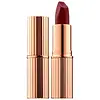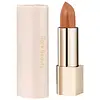What's inside
What's inside
 Key Ingredients
Key Ingredients

 Benefits
Benefits

 Concerns
Concerns

 Ingredients Side-by-side
Ingredients Side-by-side

Neopentyl Glycol Dicaprylate/Dicaprate
EmollientTrimethylolpropane Triisostearate
EmollientDimethicone
EmollientCera Microcristallina
Emulsion StabilisingPolyethylene
AbrasivePolybutene
Dimethicone Crosspolymer
Emulsion StabilisingSilica
AbrasiveDicalcium Phosphate
AbrasiveEthyl Vanillin
MaskingCaprylic/Capric Triglyceride
MaskingTocopherol
AntioxidantCarthamus Tinctorius Seed Oil
MaskingZea Mays Oil
EmulsifyingPentaerythrityl Tetra-Di-T-Butyl Hydroxyhydrocinnamate
AntioxidantCarica Papaya Fruit Extract
Skin ConditioningOrchis Mascula Flower Extract
SoothingBixa Orellana Seed Extract
MaskingBHT
AntioxidantTocopheryl Acetate
AntioxidantTin Oxide
AbrasiveMica
Cosmetic ColorantCI 77891
Cosmetic ColorantIron Oxides
CI 45410
Cosmetic ColorantCI 15850
Cosmetic ColorantCI 42090
Cosmetic ColorantCI 15985
Cosmetic ColorantCI 19140
Cosmetic ColorantCI 75470
Cosmetic ColorantNeopentyl Glycol Dicaprylate/Dicaprate, Trimethylolpropane Triisostearate, Dimethicone, Cera Microcristallina, Polyethylene, Polybutene, Dimethicone Crosspolymer, Silica, Dicalcium Phosphate, Ethyl Vanillin, Caprylic/Capric Triglyceride, Tocopherol, Carthamus Tinctorius Seed Oil, Zea Mays Oil, Pentaerythrityl Tetra-Di-T-Butyl Hydroxyhydrocinnamate, Carica Papaya Fruit Extract, Orchis Mascula Flower Extract, Bixa Orellana Seed Extract, BHT, Tocopheryl Acetate, Tin Oxide, Mica, CI 77891, Iron Oxides, CI 45410, CI 15850, CI 42090, CI 15985, CI 19140, CI 75470
Isononyl Isononanoate
EmollientC12-15 Alkyl Benzoate
AntimicrobialCaprylic/Capric Triglyceride
MaskingOctyldodecanol
EmollientPolyethylene
AbrasiveDicalcium Phosphate
AbrasiveHelianthus Annuus Seed Wax
Skin ConditioningPolybutene
Silica
AbrasiveSynthetic Fluorphlogopite
Microcrystalline Wax
Emulsion StabilisingSynthetic Wax
AbrasiveTocopheryl Acetate
AntioxidantParfum
MaskingHelianthus Annuus Seed Oil
EmollientBHT
AntioxidantGardenia Florida Fruit Extract
Skin ConditioningNelumbo Nucifera Flower Extract
Skin ConditioningNymphaea Odorata Root Extract
RefreshingTitanium Dioxide
Cosmetic ColorantIron Oxides
CI 15850
Cosmetic ColorantCI 42090
Cosmetic ColorantIsononyl Isononanoate, C12-15 Alkyl Benzoate, Caprylic/Capric Triglyceride, Octyldodecanol, Polyethylene, Dicalcium Phosphate, Helianthus Annuus Seed Wax, Polybutene, Silica, Synthetic Fluorphlogopite, Microcrystalline Wax, Synthetic Wax, Tocopheryl Acetate, Parfum, Helianthus Annuus Seed Oil, BHT, Gardenia Florida Fruit Extract, Nelumbo Nucifera Flower Extract, Nymphaea Odorata Root Extract, Titanium Dioxide, Iron Oxides, CI 15850, CI 42090
 Reviews
Reviews

Ingredients Explained
These ingredients are found in both products.
Ingredients higher up in an ingredient list are typically present in a larger amount.
BHT is a synthetic antioxidant and preservative.
As an antioxidant, it helps your body fight off free-radicals. Free-radicals are molecules that may damage your skin cells.
As a preservative, it is used to stabilize products and prevent them from degrading. Specifically, BHT prevents degradation from oxidation.
The concerns related to BHT come from oral studies; this ingredient is currently allowed for use by both the FDA and EU.
However, it was recently restricted for use in the UK as of April 2024.
Learn more about BHTThis ingredient is an emollient, solvent, and texture enhancer. It is considered a skin-softener by helping the skin prevent moisture loss.
It helps thicken a product's formula and makes it easier to spread by dissolving clumping compounds.
Caprylic Triglyceride is made by combining glycerin with coconut oil, forming a clear liquid.
While there is an assumption Caprylic Triglyceride can clog pores due to it being derived from coconut oil, there is no research supporting this.
Learn more about Caprylic/Capric TriglycerideCi 15850 is the pigment color red. It is an azo dye and created synthetically.
Azo dyes need to be thoroughly purified before use. This allows them to be more stable and longer-lasting.
This ingredient is common in foundations, lipsticks, and blushes. This color is described as brown/orangey red.
It has many secondary names such as Red 6 and Red 7. According to a manufacturer, Red 6 usually contains aluminum.
Learn more about CI 15850Ci 42090 is a synthetic dye created from petroleum. It is used to give a bright blue color to cosmetics, medicine, and food.
Dicalcium Phosphate is an exfoliant.
Polybutene is used to help control the viscosity of a product. This just means it helps adjusts the texture.
It is a polymer and does not get absorbed into the skin due to its large size.
Studies found this ingredient did not irritate skin in concentrations below 15%.
Learn more about PolybutenePolyethylene is a synthetic ingredient that helps the skin retain moisture. It is a polymer.
It is also typically used within product formulations to help bind solid ingredients together and thicken oil-based ingredients. When added to balms and emulsions, it helps increase the melting point temperature.
Silica, also known as silicon dioxide, is a naturally occurring mineral. It is used as a fine, spherical, and porous powder in cosmetics.
Though it has exfoliant properties, the function of silica varies depending on the product.
The unique structure of silica enhances the spreadability and adds smoothness, making it a great texture enhancer.
It is also used as an active carrier, emulsifier, and mattifier due to its ability to absorb excess oil.
In some products, tiny microneedles called spicules are made from silica or hydrolyzed sponge. When you rub them in, they lightly polish away dead skin layers and enhance the penetration of active ingredients.
Learn more about SilicaTocopheryl Acetate is AKA Vitamin E. It is an antioxidant and protects your skin from free radicals. Free radicals damage the skin by breaking down collagen.
One study found using Tocopheryl Acetate with Vitamin C decreased the number of sunburned cells.
Tocopheryl Acetate is commonly found in both skincare and dietary supplements.
Learn more about Tocopheryl AcetateThis ingredient is a combination of red, black, and yellow iron oxide pigments. This combination of colors is usually found in foundation, because it results in a "skin" color.